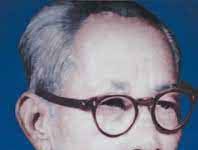Imraul Qays | Life and Poetic Career
Imraul Qays | Life and Poetic Career
Imraul Qays | Life and Poetic Career
The pre-Islamic period in Arabic history refers to a year span from 500 AD to 622 AD. It was during this period that many great poets and orators were born in Arabia and they contributed a great deal to the development of Arabic poetry. Among the Pre-Islamic poets Imraul Qays, Zuhair bin Abi Salma, Tarafa bin al-A’bd, Labid bin Rabiya, Antara bin Shaddad, Amar bin Kulthum, Haris bin Hillija, Al-Nabigha, Al-Asha, Hatim Tai, Abid bin Al-Abras, Abid bin Salat, Al-Shanfara, Al-Shamaul bin Adia are famous. Let us introduce Imru al-Qays with his poetic career below.
Brief Life Sketch: Imraul Qays was one of the greatest and most influential poets of the pre-Islamic (Jahili) era.
It is not known exactly when he was born but it is deemed that he was born in the middle of the fifth century to the royal family of South Arabia. His father’s name was Hujr bin Haris. Imarul was the youngest son of his parents. His mother was the sister of Muhalhal, a leader of the famous Taghlib dynasty.
As Imraul Qays was born to a royal family, he enjoyed freedom from an early age and at one point he became addicted to alcohol and women. In his youth, he fell in love with a woman named ‘Fatima’ and then he composed poems narrating his love affairs with Fatima and used to sing in public. His father was very upset with his son’s actions and threw him out of the home. Being driven from home, he met some wicked boys of his age and began to roam about the desert. Imraul Qays, with his associates, spent his days sometimes hunting and sometimes robbing strangers and thus earned a living. During this time, he also composed poems and sang them in public. After spending some days in this way, he suddenly got a piece of news from home that his father was murdered by members of the hostile Asad community. As soon as he got this news, he said –
“When I was young, my father spoiled me. Now I’m grown up and he leaves me to take revenge. Today is the day of drinking alcohol, tomorrow is the day of revenge. “
After this, he spent drinking wine for seven days and seven nights and then said,
“I will not eat meat and drink wine, not wash my hair, not use oil, and not touch any beautiful woman until I avenge my father.”
In order to fulfill his promise, he left his nomadic life and returned home. But unable to get the support of anyone from his clan to fulfill his promise, he went to the court of Justinian, emperor of Byzantine. There he spent ten years and practiced poetry. It is noteworthy that during this time he had a secret love affair with the daughter of Emperor Justinian. Later the emperor was sad to learn about the affair and sent Imraul Qays away from the court. The emperor presented Qays with a pair of poisoned garments while saying goodbye. Qays was happy to wear the poisoned garment but within a few days, his body filled with sores and blisters and he died of this disease in 540 AD at a place called Ankara. As he was affected by sores, he was also called ‘Zulkuruh’ (a person suffering from sores). It is worth mentioning that Imraul Qays was also known as the ‘King of the Desert’ because he traveled all over the Arabian Desert.
Poetic Career: Imraul Kaiser composed many poems, although only a fraction of his works are available. ‘Muwallaka’ is his famous poem. This is a narrative poem. Eighty-one lines of the poem have been found. The poem is thought to have been longer. A study of his poetry reveals that the main themes of his poems are love, adventure, praise of heroism, condemnation of the enemy, and nature.
His ‘Muwallaka’ poem begins with the theme of love for his beloved. He is very skilled, tactful, and sensitive in describing a woman’s body. In describing the body of a woman, he resorted to a bunch of innovative imageries. No part of a woman’s body, such as breasts, buttocks, face, hair, skin color, body odor, etc., has been left out of his description. He created incomparable imageries while describing a woman’s body and compared her with deer, moon, bird, etc. He made his poems unique in poetic power by comparing his lover’s face with a gold coin, the breast with a deer’s nose, the odor emanating from her body with musk, and the saliva of his beloved’s mouth with honey. His attraction to women was unparalleled. His imageries show how powerful his poetic power was in portraying a woman’s body! The following is an excerpt from his muwallaka poem:
(a) ” I’ve got into those women’s inner chamber
Where no man entered before
And enjoyed so much.”
(b) As soon as you take off your clothes
the source of beauty comes out
And too many pearls and diamonds
I take upon my two palms!
(c) You showed me
The bright tenderness of your cheeks
With a look full of shyness
The deer of the forest feels shame
Oh, how beautiful!
The second theme of his poems is the praise of heroism and condemnation of his enemy. On the other hand, the description of the wild animals of the desert along with camels also finds a place in his poetry. He describes horses as follows:
“When the birds of the forest are still in their nests
I leave home at dawn
On the back of a short hairy, fast, beautiful, tender
And skilled hunting horse in the prey.
Intense is her speed all around. ”
His poems also contain a sensitive description of nature. In eight lines of his poem ‘Muallaka’, he portrays clouds, torrential rains, storms, etc.
In all, even though Imraul Qay’s poetry was fertile and appreciated in poetic power, Hazrat Mohammad called him the ‘leader of hell’ because of his unrestrained greed for women’s bodies and sensitive portrayal of woman’s limbs. On the other hand, Hazrat Omar and Hazrat Ali could not but appreciate his poetic power despite the obscenity.
It is safe to say that Imraul Qays was undoubtedly one of the foremost Arab poets of the pre-Islamic era. Perhaps it is because of his poetry that the poems of the Jahili era have been the subject of discussion from century to century. 0 0 0.
Read More: A Brief History of Arabic Literature: Early Islamic Period (622 AD-661 AD)
Imraul Qays | Life and Poetic Career
N.B. This article ‘Imraul Qays | Life and Poetic Career’ originally belongs to the book entitled ‘A Brief History of Arabic Literature: Pre-Islamic Period (500 AD-622 AD) by Menonim Menonimus. Imraul Qays | Life and Poetic Career
Related Searches:
Books of Literary Criticism by M. Menonimus:
- World Short Story Criticism
- World Poetry Criticism
- World Drama Criticism
- World Novel Criticism
- World Essay Criticism
- Indian English Poetry Criticism
- Indian English Poets and Poetry Chief Features
- Emily Dickinson’s Poetry-A Thematic Study
- Walt Whitman’s Poetry-A Thematic Study
- Critical Essays on English Poetry
- Tawfiq al-Hakim’s Novel: Return of the Spirit-An Analytical Study
- Tawfiq al-Hakim’s Novel: ‘Yawmiyyat Naib Fil Arayaf’-An Analytical Study
- Analytical Studies of Some Arabic Short Stories
- A Brief History of Arabic Literature: Pre-Islamic Period (500 AD-622 AD)
- A Brief History of Arabic Literature: Early Islamic Period (622 AD-661 AD)











